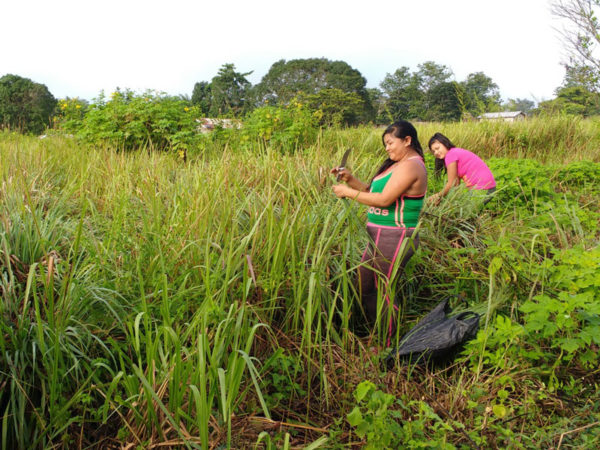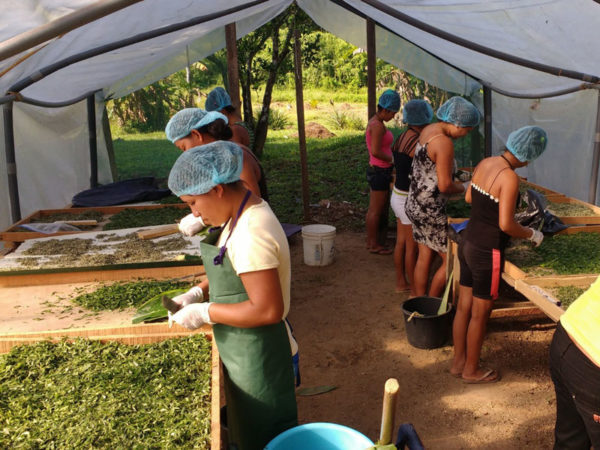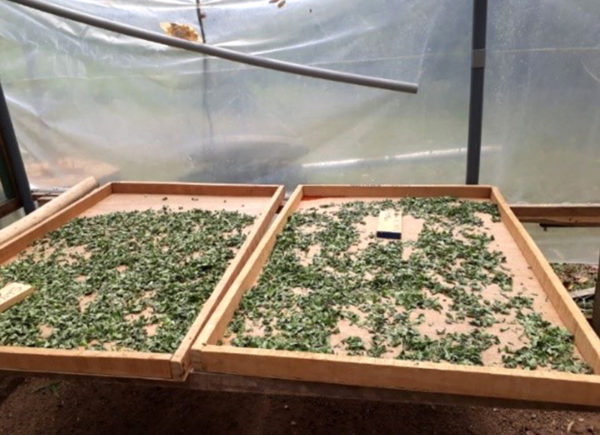
For indigenous and tribal cultures, increasing involvement in global culture and new technologies, such as mobile phone networks, has led to increasing dependence upon cash income. In Suriname, villages are emptying out as residents increasingly leave their communities for extended periods to seek wages in extractive industries such as logging and mining. Such activities are environmentally unsustainable, hazardous to health, and associated with ongoing loss of culture, traditional territory and knowledge.
To address this challenge, Green Child NV and the Amazon Conservation Team (ACT) have, for many years, been involved in research and support for the development of non-timber forest products (NTFPs) as sustainable, locally-based economic alternatives. In Suriname, We are currently working hand-in-hand with partner communities to promote locally produced handicrafts, herbal tea, hot pepper, and honey.
Bruce Hoffman, ACT’s Land and Resources Specialists conducting training

Herbal Tea
The ACT-guided herbal tea project began in the village of Kwamalasamutu (remote southwestern Suriname), in mid-2017. There was little participation in the first months of the initiative because herbal tea production was an unfamiliar activity. The community used herbs as medicine, but it was not a cultural norm to make herbal tea as a beverage. Fortunately, as the tea project pilot activities progressed and participants received compensation, interest notably increased.
Although participation was open to all villagers, from the beginning it was primarily younger women that expressed interest. In 2018, the number of tea producers has steadily increased each month, and today there are 40 enthusiastic participants from diverse family units and sub-cultures in the village. A local female leader has been hired and trained to ensure that protocols are followed with respect to sustainable harvest, hygiene, efficiency, record-keeping, payments and adaptive management of the project.
We are currently working with tea project participants to establish a group or cooperative to build skills in local management of the project and to create a common fund to build financial independence and invest in supplies. Simultaneously, we connected the community project with a company in Paramaribo that will take responsibility for the purchase and marketing of herbal tea product from Kwamalasamutu. Payments are based simply upon the kilograms of quality tea that are produced – there are no monthly salaries. We aims to serve as a temporary bridge that will eventually be only indirectly involved in the value chain and marketing of the product.
The product and process: on a given work day, participants fan out to different areas of the village and forest where the tea plants are located. They collect and cut the plant material with machetes or knives, being sure to leave roots in the ground so the plants can regrow.



